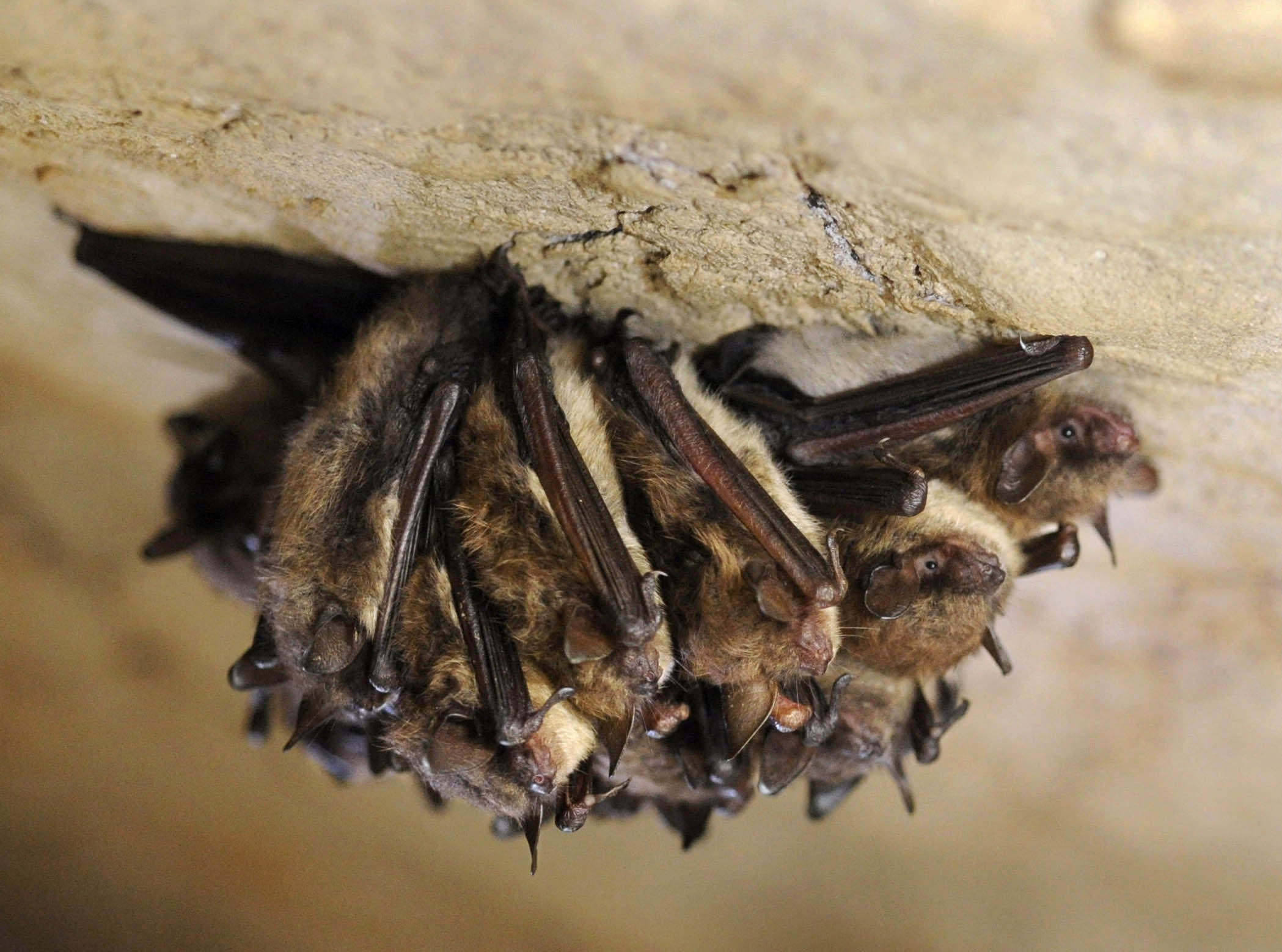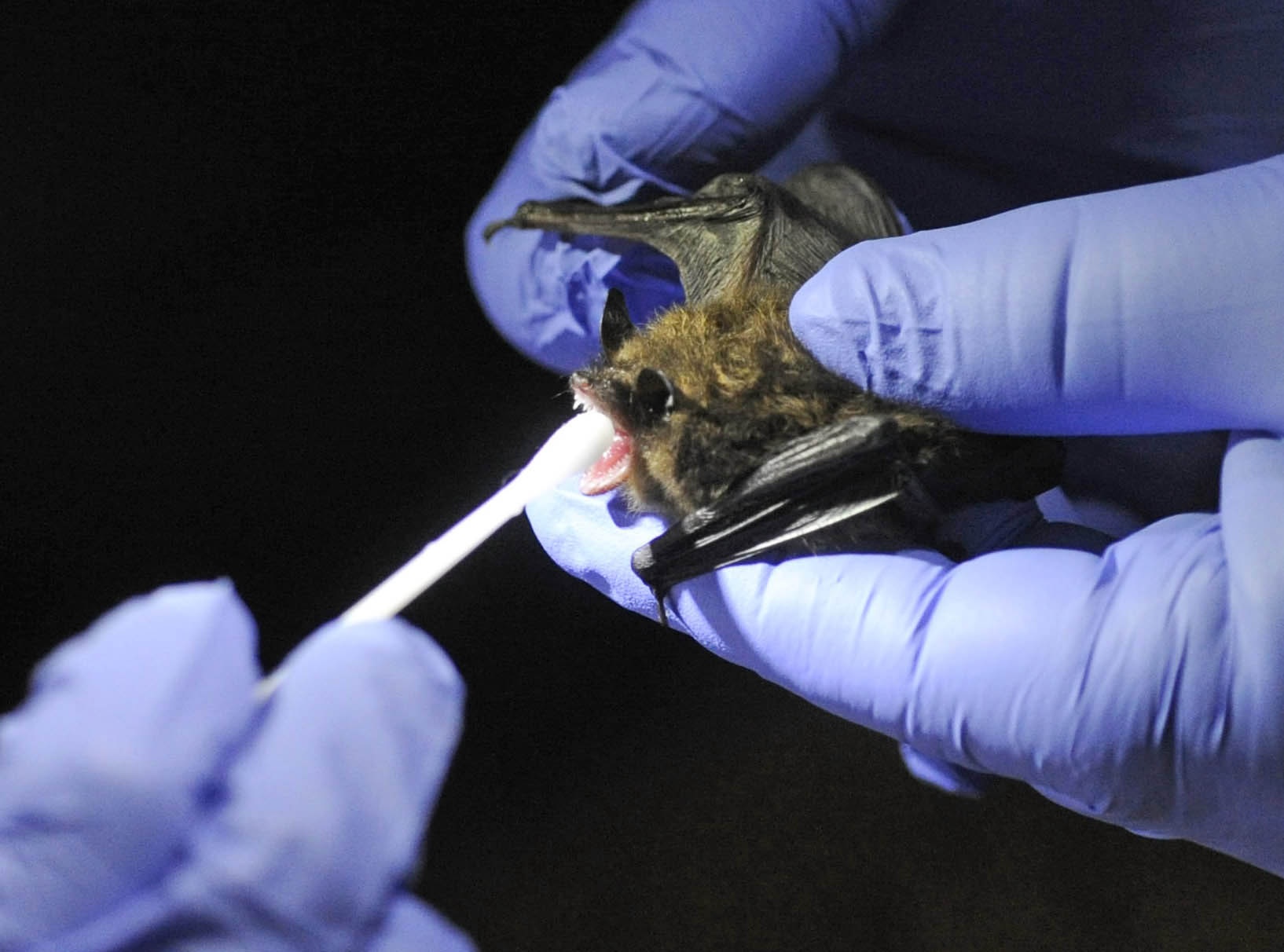 In a Dec. 16, 2011 photograph, a cluster of little brown bats hibernate in New Mammoth Cave near LaFollette, Tenn. Researchers with the University of Tennessee and Bucknell University are collecting 100 little brown bats from Tennessee caves for research aimed at combating white nose syndrome, a fungal disease that infects and kills hibernating bats. (AP Photo/Amy Smotherman Burgess, Knoxville News Sentinel)
In a Dec. 16, 2011 photograph, a cluster of little brown bats hibernate in New Mammoth Cave near LaFollette, Tenn. Researchers with the University of Tennessee and Bucknell University are collecting 100 little brown bats from Tennessee caves for research aimed at combating white nose syndrome, a fungal disease that infects and kills hibernating bats. (AP Photo/Amy Smotherman Burgess, Knoxville News Sentinel)Tennessee could receive nearly $21 million annually for proactive wildlife management, conservation and restoration under proposed bipartisan legislation introduced in Congress.
Lawmakers hope the plan will provide much-needed funding for state agencies to perform their legal responsibilities.
"Tennessee Wildlife Resources Agency has revitalized countless species through science-based management," Tennessee Wildlife Federation CEO Michael Butler said. "This bill is a reasonable investment in that proven and pragmatic approach."
All 50 states and five U.S. territories adopted Wildlife Action Plans in 2005. The plans were developed by states to conserve wildlife and habitat before they become too costly to restore.
Much of that responsibility fell on the TWRA, which is legally mandated to manage and conserve all species in the area.
However, there was a problem.
"We've never had the funding to do what needs to be done," Butler said.
The bill aims to fix that.
The proposed legislation uses $1.3 billion of existing oil and gas revenue from activity on federal lands and waters to give back to the states to fund the state-led efforts to prevent species from becoming endangered. States are required to match 25 percent of the funds.
 In a Dec. 16, 2011 photograph, a little brown bat is swabbed during a white nose syndrome study at New Mammoth Cave near LaFollette, Tenn. Researchers with the University of Tennessee and Bucknell University are collecting 100 little brown bats from Tennessee caves for research aimed at combating white nose syndrome, a fungal disease that infects and kills hibernating bats. (AP Photo/Amy Smotherman Burgess, Knoxville News Sentinel)
In a Dec. 16, 2011 photograph, a little brown bat is swabbed during a white nose syndrome study at New Mammoth Cave near LaFollette, Tenn. Researchers with the University of Tennessee and Bucknell University are collecting 100 little brown bats from Tennessee caves for research aimed at combating white nose syndrome, a fungal disease that infects and kills hibernating bats. (AP Photo/Amy Smotherman Burgess, Knoxville News Sentinel)TWRA will use the money for non-game species as mandated by the federal government, according to TWRA spokeswoman Mime Barnes. Their ongoing research projects include the study of white-nose syndrome, which has drastically affected bat populations in the eastern U.S., she said.
The cost of protecting an endangered species can grow to the billions, Butler said, referencing species such as the Northern spotted owl. The more work that can be done to protect species from becoming threatened and endangered will save money for states in the long run, he believes.
"Prevention costs a fraction of the tens of billions of tax dollars and lost private revenue that conserving a single endangered species costs," according to a release from the Tennessee Wildlife Federation.
In Tennessee, there are more than 70 federally listed threatened and endangered wildlife species with more than 1,400 plant and animal species listed as being in the greatest need of conservation, according to the release.
"Right now, America's wildlife are in crisis and need our help," Collin O'Mara, president and chief executive officer of the National Wildlife Federation, wrote about the bill. "As many as one-third of all wildlife species in our nation are at risk. We need to act now to ensure that future generations of Americans inherit the full diversity of our nation's fish and wildlife."
Contact staff writer Mark Pace at mpace@timesfreepress.com or 423-757-6361. Follow him on Twitter @themarkpace and on Facebook @Chattanooga Outdoors.
